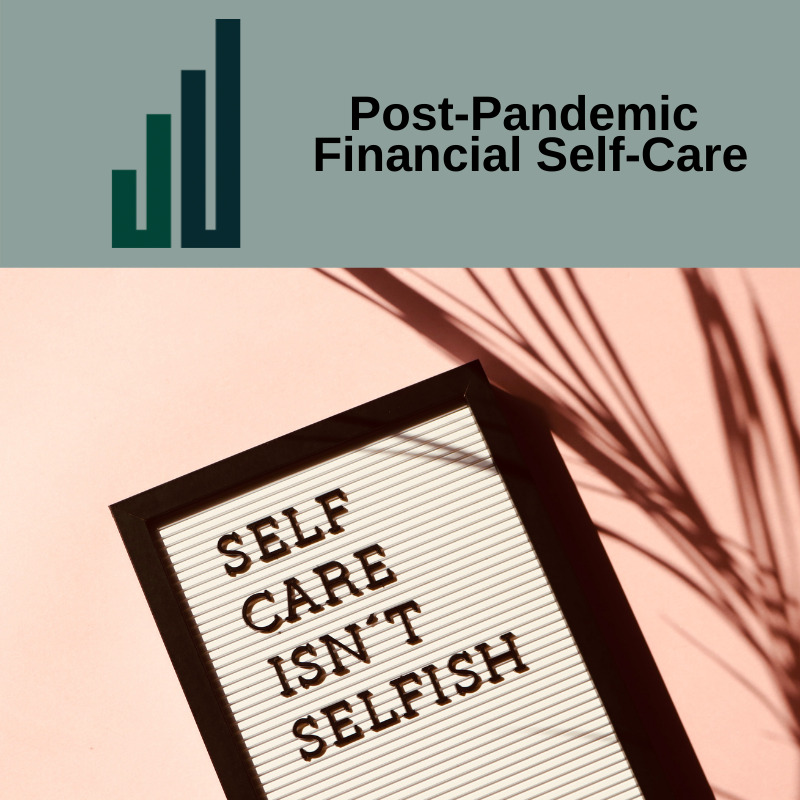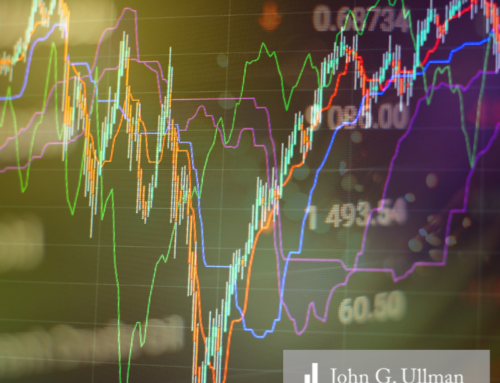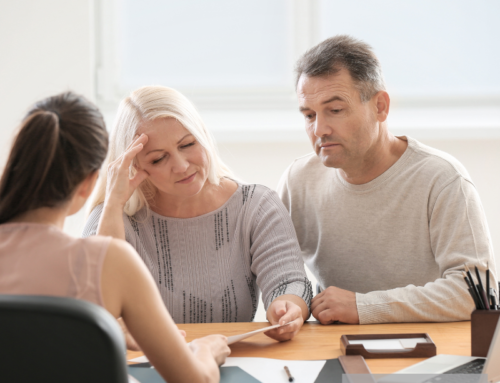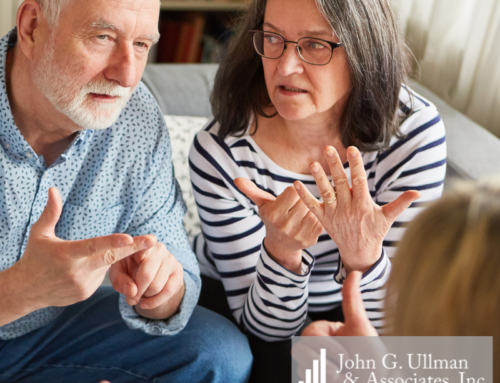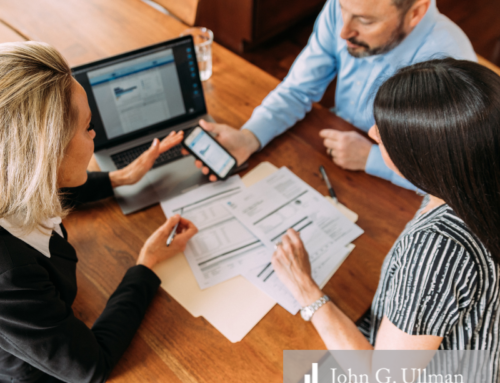Yes, I used the word “post-pandemic” even though the pandemic is not over yet. While about 30% of the United States population is fully vaccinated and mask mandates and social distancing seem to be disappearing, we are all still being cautious.
What I wanted to talk about today is financial self-care now that there seems to be light at the end of the pandemic tunnel.
Everybody went through something different, and potentially something financially traumatic, in the last 12 months. Can you believe it’s been a year? I know that when everything shut down, I was convinced that I would only be working remotely for 2-3 months tops! Shows how much I know. I was one of the lucky ones that kept my full time job, worked remotely, and also had the added benefit of having much less in the way of expenses (e.g. no student loan payments, reduced gas, reduced social & travel). But, like I said, I was one of the lucky ones. Not everyone had the same experience.
I hope that we as a country learned a lot about our economic system and our personal financial wellbeing during this period. We saw so many individuals, families, non-profits, and small business fall into poverty or go bankrupt. It is so scary that more than 40% of people in the United States cannot cover an emergency that would cost $1,000 or more. That statistic boggles my mind. And we saw the effects of that last year. Not everybody received enough benefits to make it through the shutdown successfully.
One thing I say a lot in my job is that we can’t change the past, but we can change our future. What are some of the things we can do to ensure our financial wellbeing as we come out of this COVID world?
Build Up that Emergency Savings
I am not going to preach here, because we all have different life experiences. Many of those who received unemployment benefits and stimulus payments needed them to survive. On the other hand, some were able to set aside this money in a savings account for the future. Even more of us learned the importance of some sort of fund set aside for rainy days – or in this case, a pandemic year. Sh*t happens. All the time. We all have emergencies, whether it’s a small one for $300 or a large one for $3,000. We all could use some savings in those situations. My vote, as we as a country re-enter the workforce, is to commit to setting aside a small amount of each paycheck to build up that emergency fund – if you are able. $20 here, $50 there can go a long way when you are desperate in an urgent situation. If you can do more, do more. The last thing you want to have to do is pay for an emergency with a credit card and pay a 23% interest rate on that emergency.
Estate Planning (Wills, Powers of Attorney, & Health Care Directive)
It is extremely sad that the United States lost 575,000+ people to the COVID virus over the past year. Many of these deaths were unexpected and happened quickly. I think this should alert all of us that anything can happen and we should have a plan in place. Do you want a say in what happens to your bank accounts, house, car, investment accounts, or even that quirky antique collection you have in your house after you die? Do you want someone to be able to make health care or financial decisions while you’re hooked up to a ventilator for a month in the hospital? Take the time to get a Will drafted so you have control over what happens to your assets when you die. While you’re at it, make a Power of Attorney and Health Care Directive so that someone can assist with your care if you are unable to for a short period of time. You can hire a local attorney to draft these for you or you can use a cheaper online software to do it. Good luck!
Financial Awareness
Many of my friends, clients, and family have never been so financially self-aware this past year. We were all tested someway financially. I bet you’re thinking of one way while you’re reading this blog. Is there something you can change going forward that might bring you a sense of financial wellbeing in the future? My own personal battle at the moment is fighting the Doordash urge. I’ve never liked cooking at all, but besides takeout, in my area, there was really only pizza delivery. With so many restaurants delivering to my door without the need for any human interaction, I have wasted SO much money on food delivery in the last 12 months. Ugh. For me, I am challenging myself to reduce my Doordash intake in the month of May. Hopefully that’ll help break that bad financial habit. You should give yourself a challenge as well! See what you can do and check in with yourself or a friend in a month or two to see how you’re doing.
Self-Care
The last one I want to talk about is my own personal opinion. We have all fought some battles over the last year. Whether it was fighting COVID, losing a loved one, losing a job, working-at-home with kids, being stuck inside for months, or anything else, we’re mentally tired. Financial strain may be part of it, but the emotional exhaustion has taken its toll on many people. Give yourself a little financial break. Go ahead and take that road trip you’ve been planning. Go ahead and have that spa day if you’re comfortable. Go ahead and splurge a bit. I am going to treat myself to a safe beach trip in the near future. You may have found out a lot about yourself this past year. What you miss and what you don’t. What you love and what you could do without. Take what you learned and do something about it. Go have a little fun! But be safe and respect others! We’re not out of the woods yet.
In summary, there is always something to learn in the ways of finances and something you can do differently to improve your wellness. This has been an incredibly strenuous year. Let’s make a small financial fix to our futures. I know you can do it. Good luck!


